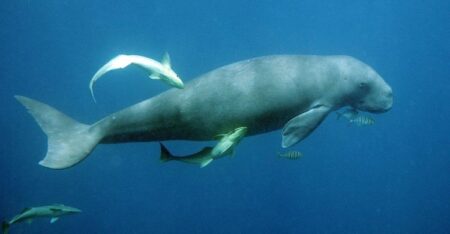From India comes the story of three teen inventors who were looking to improve rural healthcare by creating a portable fridge that needed no electricity or coolant fluids.
The result of their inspiration is a small, salt-cooled fridge that needs neither a power outlet nor a battery, but rather cools down passively as the salts dissolve in water.
Teens Win 2025 Earth Prize for Refrigerator That Runs on Salt
Calling it “a fridge to bridge the world,” the Thermavault can use different combinations of salts to keep the contents at temperatures just above freezing or below it. Some vaccines require regular kitchen fridge temps, while others, or even transplant organs, need to be kept below freezing, meaning this versatility is a big advantage for the product’s overall market demand.
Dhruv Chaudhary, Mithran Ladhania, and Mridul Jain are all children of physicians or medical field workers in the state of Indore. Seeing how difficult it was to keep COVID-19 vaccines viable en route to countryside villages hours outside city centers in tropical heat, they wanted to create a better, portable solution to keeping medical supplies cool.
Because salt molecules dissolve in water, the charged ions that make up the salt molecules break apart. However, this separation requires energy, which is taken in the form of heat from the water, cooling it down.
Though the teen team knew this, it remained a challenge to find which kind of salt would have the optimal set of characteristics. Though sodium chloride—our refined table salt—is what we think of when we hear the word “salt,” there are well over one-hundred different chemical compounds that classify as salt.
“While we did scour through the entire internet to find the best salt possible, we kind of just ended up back to our ninth-grade science textbook,” Chaudhary told Business Insider.
Indeed, the professors at the lab in the Indian Institutes of Technology where they were testing Thermavault’s prototype were experimenting with two different salts which ended up being the best available options, a discovery made after the three teens tested another 20, none of which proved viable.
These were barium hydroxide octahydrate and ammonium chloride. The ammonium chloride alone, when dissolved, cooled the water to between 2 and 6 degrees Celsius (about 35 to 43 degrees Fahrenheit) perfect for many vaccines, while a dash of barium hydroxide octahydrate dropped that temperature to below freezing.
“We have been able to keep the vaccines inside the Thermavault for almost 10 to 12 hours,” Dr. Pritesh Vyas, an orthopedic surgeon who tested the device at V One hospital in Indore, said in a video on the Thermavault website.
Designing a prototype, the teens have already tested it in local hospitals, and are in the process of assembling another 200 for the purpose of testing them in 120 hospitals around Indore to produce the best possible scope of use and utility data for a product launch.
Their ingenuity and imagination won them the 2025 Earth Prize, which came with a $12,500 reward needed for this mass testing phase.





